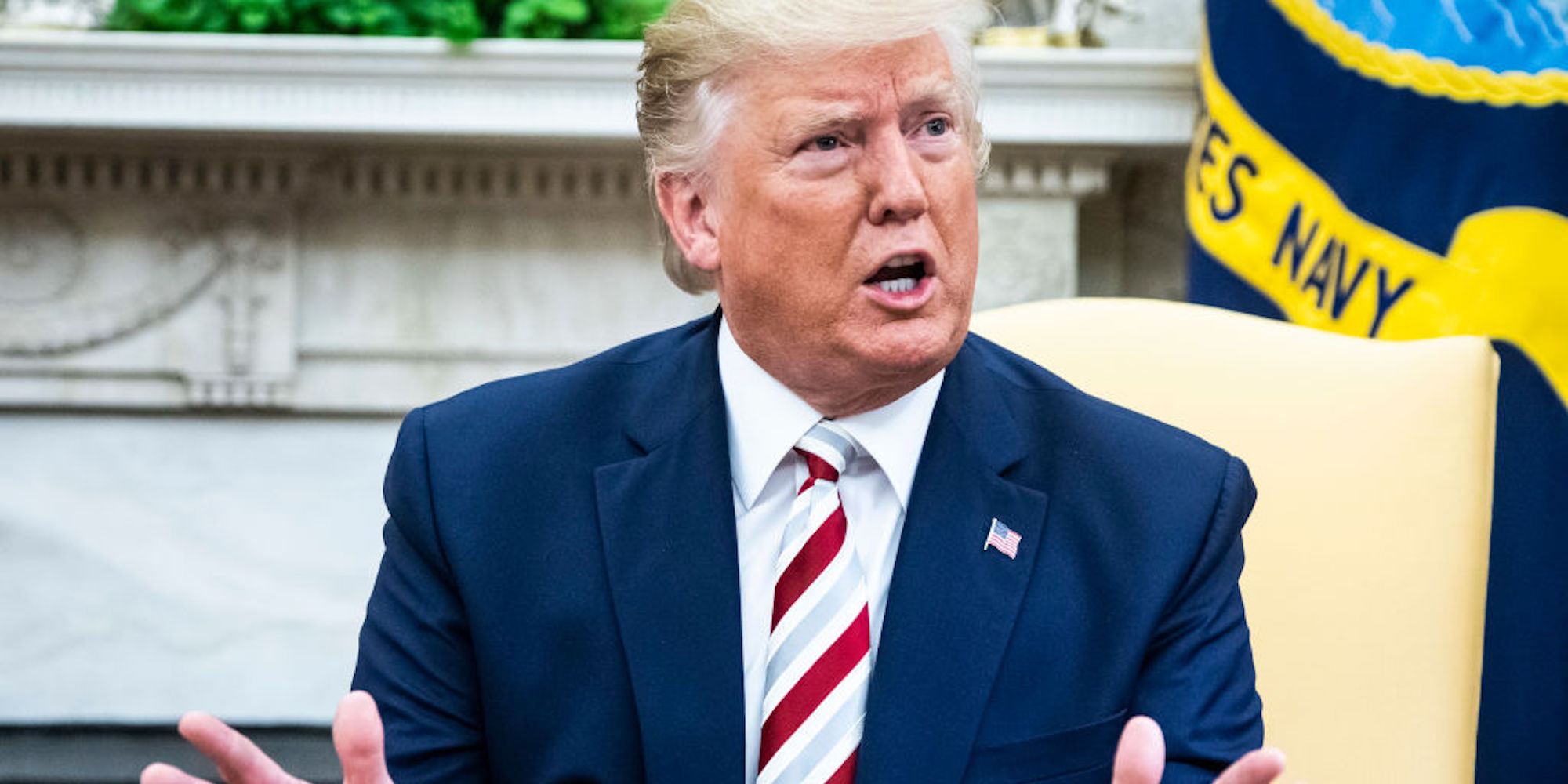- US President Donald Trump defended his trade war with China in remarks to reporters at the White House Tuesday after being questioned about the prospect of a recession.
- “Whether it’s good or bad, the short term is irrelevant. We have to solve the problem with China because they’re taking out $500 billion a year plus,” remarked President Trump Tuesday.
- Many economists are warning that a recession may be on its way, and have put some of the blame on Trump’s trade war with China for bringing economic instability.
- Trump and aides are reportedly concerned that a recession could seriously dent his chances of re-election in 2020.
- Visit Business Insider’s homepage for more stories.
US President Donald Trump on Tuesday described the prospect of the US falling into recession as “irrelevant,” and defended his decision to wage a trade war with China.
Speaking during the visit of the Romanian President Klaus Iohannis to the White House Tuesday, Trump was asked about concerns that his trade war with China is negatively impacting the US economy.
The president replied that: “Somebody had to take China on.”
“And it’s about time, whether it’s good for our country, or bad for our country short term,” he continued.
"Long term, it's imperative that somebody does this because our country cannot continue to pay China $500 billion because stupid people are running it."
"I don't mind this question. Whether it's good or bad, the short term is irrelevant. We have to solve the problem with China because they're taking out $500 billion a year plus. And that doesn't include intellectual property theft and other things."
And reframing the reporter's question, he continued: "And also, national security. So I am doing this whether it's good or bad for your statement about 'OK, will we fall into a recession for two months?'"
President Trump says his trade war with China will help in the longterm despite recession fears: "I am doing this whether it's good or bad ... somebody had to take China on" https://t.co/LKwvtZnflM pic.twitter.com/gTbcHUYr26
— CNN Politics (@CNNPolitics) August 20, 2019
"The fact is, somebody had to take China on. My life would be a lot easier if I didn't take China on. But I like doing it because I have to do it."
The president's seeming acceptance that his policies could cause the US economic pain marks a sharp departure from his remarks in recent days, in which he has boasted of the strength of the US economy and accused the media and political opponents of skewing economic data to precipitate a recession and help torpedo his chances of relection in 2020.
Trump's remarks were echoed by his acting chief of staff, Mick Mulvaney. In remarks to GOP donors at an event in Washington DC Tuesday, Mulvaney said that if the US were to face a recession it would be "moderate and short," Politico reported.

White House officials had previously insisted that data indicating a possible recession was being exaggerated, and underlying indicators meant the prospects for the economy remained good.
On Tuesday, Trump said that he does not believe a recession is on its way - but that pay roll tax cuts were among measures being considered should the US economic situation worsen.
"We're very far from a recession," Trump said. "In fact, if the Fed would do its job, I think we'd have a tremendous spurt of growth, a tremendous spurt."
A rare inverted yield curve, where long term borrowing rates become cheaper than short term rates, occurred in bond markets last week. An inverted yield curve has in the past indicated that a recession or economic downturn is on its way.
Some economists have pointed to Trump's trade war with China as among the factors responsible for the economic instability, placing pressure on him to reach a trade deal with Beijing.
But the president's confrontational stance with China was, according to analysts, among the reasons he was able to clinch victory in Rust Belt swing states in 2016 and win the presidency.

